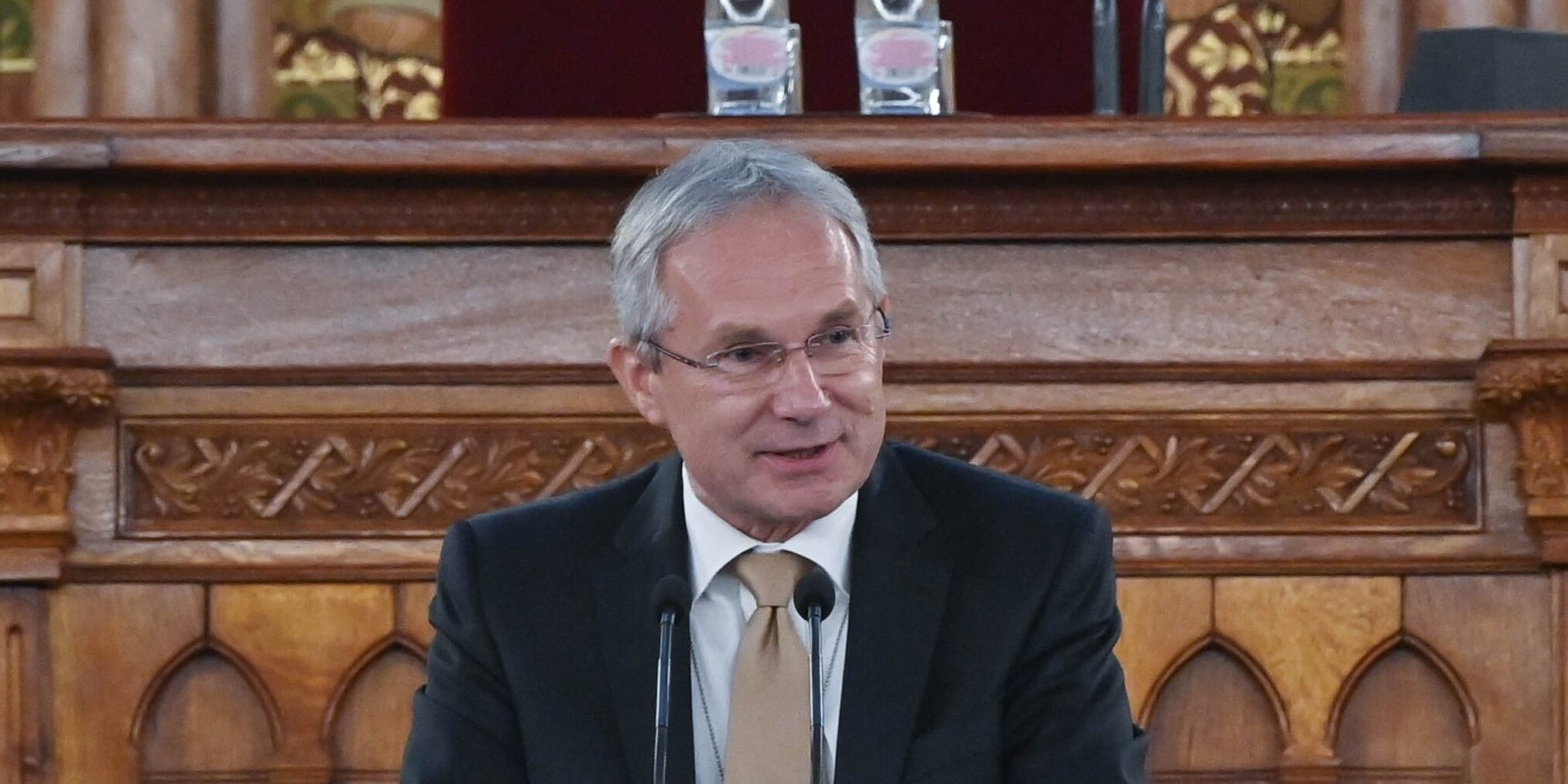Why do we need multilateralism so badly? – Interview with Csaba Kőrösi at the Imperial Springs International Forum
Summary of the Global Times’ interview
“Collective Action for the Future” was the theme of the 2024 Imperial Springs International Forum, aiming to provide a platform for discussing the issues influencing the state of world stability and peace-making mechanisms. The ISIF was held on December 11-12 in Madrid, with the participation of key figures from the political, business, and academic sectors. During the forum, Global Times reporter Wang Wenwen asked Csaba Kőrösi to discuss his understanding of the theme, who besides being the strategic director of the foundation, is also the president of the 77th UN General Assembly.
Csaba Kőrösi explained that the world is going through a serious global crisis that has a dual nature: firstly, we are experiencing intensifying geopolitical competition and a growing number of armed conflicts globally; secondly, our unsustainable way of operating leads to several interconnected issues, for example, endangering access to common goods. We need multilateralism to deal with these problems, but with the current conditions, when a zero-sum game mentality dominates international relations, initiatives for collaboration face serious obstacles. However, letting a zero-sum game mentality overshadow the necessity of global cooperation on global common goods results in a lose-lose game, instead of having one winner and one loser. Our responsibility is to find ways of collaboration in the naturally competitive environments of geopolitics – which does not exclude still having some kind of race. A functioning, multilateral order is in everyone’s interest, including China, the United States, Europe, and Africa. “Today more people die from environmental or climatic reasons than from war, despite the fact that we have more armed conflicts today than at any other time since the Second World War”, he added.
Csaba Kőrösi also shared his views on how our societies have always been driven by rules and how we need to adopt a new, goal-based approach to change the course of our currently unsustainable development. He pointed out that despite introducing this approach through, for example, the Sustainable Development Goals, in most cases, we are still driven by the old rules that can even contradict our goals. Obviously, those old rules have to be altered for the sake of success.
Another major challenge the strategic director was talking about is the decomposition of the existing security arrangements of the world. He also pointed out that our institutions are showing signs of weakness while the number of armed conflicts around the world is reaching record numbers. In addition, local or civil wars have become more international in the last 20 years.
Reflecting on the EU’s tariffs imposed on Chinese electric cars, he said he does not believe sanctions are generally a good solution for settling differences. “It would not help anybody if we continue to go down the road of a trade war,” he said. While understanding the difficult situation the European Union’s industries are in, having to comply with more regulations than the Chinese ones, he believes there should be a negotiated agreement between the two parties.
When asked about US-China relations, he was optimistic, seeing a dynamic that is aiming for mutual assured survival as opposed to the relationship between the US and the Soviet Union during the Cold War. He stressed it is crucial that these two superpowers reach a common ground regarding key issues. For example, the great breakthrough of the Paris Agreement was only possible because of a prior China-US agreement that laid down the basis for it.
He stresses that, in light of the current global situation, if we cannot work together, several countries will collapse very soon, leading to serious consequences.
You can read the entire interview here.
Photo: archive, MTI/Noémi Bruzák
